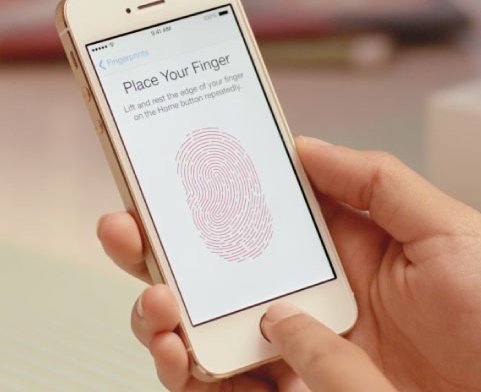 NEWS
NEWS
 NEWS
NEWS
 NEWS
NEWS
![]() Apple’s next-generation iPhone 5S looks snazzy as hell and comes with the latest iOS 7 operating system, but by far and away the most intriguing aspect of the phone was its new fingerprint scanner. The iPhone’s Touch ID biometric security feature was one of the biggest talking points yesterday, with many arguing that this could bolster Apple’s popularity with enterprise users, while others still were concerned that it could present new security risks for consumers, with all of that biometric data potentially falling into the hands of the NSA and/or cybercriminals.
Apple’s next-generation iPhone 5S looks snazzy as hell and comes with the latest iOS 7 operating system, but by far and away the most intriguing aspect of the phone was its new fingerprint scanner. The iPhone’s Touch ID biometric security feature was one of the biggest talking points yesterday, with many arguing that this could bolster Apple’s popularity with enterprise users, while others still were concerned that it could present new security risks for consumers, with all of that biometric data potentially falling into the hands of the NSA and/or cybercriminals.
These things may or may not happen, but the big story is not what biometric security does for Apple, but rather, what Apple can do for biometrics as a successor to outdated and frustrating password security methods.
Fingerprint scanners are nothing new – they’ve been around for years with companies like Lenovo and others building them into their laptops, while Sony introduced the world’s first thumb drive with a fingerprint scanner on board back in 2003, and the likes of Motorola and LG have both made smartphones using the same technology.
But for one reason or another, either because these products were never that popular, or because the fingerprint reading technology itself was sub-standard, biometrics has failed to catch on as a genuine replacement for passwords. So could it be that with the iPhone 5S, the humble password can finally be put to bed?
One security expert thinks that could well be the case. Speaking to SiliconANGLE this morning, Terry Hartmann, VP of Global Security Solutions for Unisys, said that the iPhone could well be the catalyst that biometric security needs to finally make it into the mainstream.
“Every new technology needs a catalyst to achieve critical mass user acceptance; and for biometrics, the new iPhone may well be it,” said Hartmann.
“No one wants to worry about PINs, passwords or tokens anymore; they are just too inconvenient or too insecure. For something to become ubiquitous people have to want to use it, and it has to be a snap to use. The new iPhone may be the answer.”
Things are different this time because Apple’s “Touch ID” system combines the enhanced security and convenience of biometrics with what is the world’s most widely recognized smartphone platform – simply put, this is the first time that such a popular device has ever been enabled with biometric security.
Fact is, consumers are going to buy the iPhone in their millions regardless of what kind of security features it has. And presuming Touch ID is as reliable as Apple claims (and it should be, its reputation is at stake here), the chances are that the feature will quickly catch on with consumers – many of whom are crying out for an alternative to using clumsy old passwords.
“The Unisys Security Index, an annual survey of consumer attitudes on all aspects of security, has consistently shown that most people are extremely open to the idea of using a biometric like a fingerprint as a way to authenticate their identities for activities such as online purchases,” adds Hartmann.
Consumers have long complained that passwords are difficult to remember, and this is why security is often so lax – as people often choose easy-to-remember passwords that can easily be guessed or hacked.
This won’t be the case with Touch ID, which while still probably ‘hackable’, isn’t nearly as vulnerable as passwords – yet offers much greater convenience. If biometric security proves to be a hit on the iPhone, then we’ll likely see the same feature adopted on other smartphones and devices too, as Apple’s rivals won’t allow it to maintain that kind of advantage over them.
In other words, it might not be long until passwords become practically obsolete as biometric security features become the new standard on virtually all devices.
THANK YOU